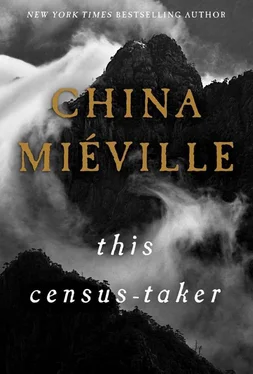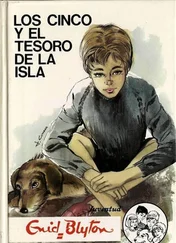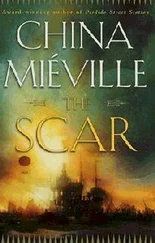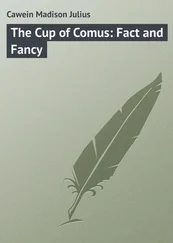When my mother cooked mostly she did not talk, planning her garden, I think, neither meeting nor avoiding my eye. When he made supper, my father would step around the little kitchen and pass me food, smiling like a man trying to remember how to do it. He’d look eagerly at my mother and me, and she would not look back, and I would, though also without a word, and he’d try to ask us things and tell us stories.
—
“It’s best to live up here,” my father told me. “Where the air’s good and thin, not too heavy. It doesn’t get in the way.”
That’s a brief memory. When he said that he and I were walking together down the path on an errand I don’t remember. I hadn’t realized it yet but I wasn’t often alone in his company like that; my mother placed herself at the periphery of most of our interactions. I would go walking on my own, though, which she didn’t stop, and so would he, and then I might see him, even follow him, though I tried not to let him see me.
On some days bigger and more intricate things than birds passed over us through that thin air, bustling and busy too high for me to make them out. If I was in his sight when they did so, my father would try that smile again so I thought he wanted to explain something to me, but he never did.
I grew up with the constant wind of the hill whispering to me and pushing back my dark fringe. Behind its sounds were the faint and far-off and occasional shouts of animals and the clack of rock-fall. Sometimes there was an engine or the percussion of a distant shotgun.
I’d seen my father’s furies before the day of that murder when his face and my mother’s face flickered together. I call them furies but in those moments he was unmoved and unmoving: he looked as if he was distracted and thinking deeply.
When I was seven he killed a dog while I watched. It was not our dog. We didn’t then keep any living thing.
I was upslope from my mother’s garden in a splayed tree with roots tangling in the hill dirt. I remember the day as caustically bright, and I remember things overlooking me and gusting at the limits of the flat and open sky. So there I was: the boy, stroked by leaves, not knowing where his mother was, watching his father.
The man sat smoking on an outcrop below. He was unaware of the boy’s attention.
That small red dog came down from nowhere in particular in the heights. It had lived, I suppose, as after weaning all the semi-wild animals on the hill must, by stealing and begging, by luck, as well as by its hunting.
It came closer to my father with a hesitant hope-filled cringe. The man was motionless, his cigarette half-raised.
The dog came zigzag closer, putting down careful steps between the pebbles. The man held out his hand and the animal stopped but he rubbed his finger and thumb together and the little dog sniffed and crept forward again. It licked his hand and he took it by the back of the neck. It struggled but not much: he knew how to hold a dog and it was not panicked.
He put his cigarette out on a stone. He examined that stone and rejected it and looked for a better one. A rush swept through the watching boy and made him shake. It was as if his own heartbeat punched him inside. His father searched.
I knew what he was going to do. This is the first memory I have of my father killing anything but I remember the certainty with which I watched him. It was strong enough that I wonder now if I’ve forgotten other, earlier such acts, that then I still remembered.
The man raised his chosen flint high and hit the dog with it. He brought it down on its head and it did not bark. He hit it again and again. The boy clung to the tree and watched and pushed one shaking hand into his mouth so as to be quiet like the dog. My fingers tasted of resin.
When he was done my father stood and looked into the valley. It was a cold summer and everything was green; you couldn’t see the river, the depths of the cut below the town and its bridge were so thick with trees. The dog dangled in my father’s hand. He trudged up the slope.
Though I was full of terror, when he went from view behind a twist of landscape, I came down from the tree and went up too, staying hidden, waiting for him to emerge again into my sight. He didn’t see me when he did. He ascended to the west and I crept after him behind rocks and undergrowth and in ditches. I followed him up the twisting way he took that wasn’t a true path but that I could see he’d walked before. The dog’s tail brushed the ground.
My father disturbed buzzards. They lifted off slowly and circled.
There was a cave mouth above and out of sight of our house and of the road. I had never before approached it from this direction and so was surprised at its appearance, but I knew it. I wasn’t supposed to come here without my parents but sometimes I did.
When they took me, my mother and father would encourage me over its odd prim fringe of stone spurs that rose like a low fence at the threshold, and step over themselves into the shadow in the hill. They never came without a flashlight, and they would crank its handle and let its orange glow show their way on the tunnel floor. Even without that illumination, even when I came alone and was too afraid to go far, I could see the pit.
In their company I’d go forward slowly, tapping my way with a stick or my toes as if the rock floor was a trick, or crawling on all fours and patting the ground before each shuffle and slide as if the black split might ambush me.
This time I clung to a wind-carved stump and watched my father enter the hill. I came close enough to see. He was standing still and looking into our dump-hole.
The hole interrupted the passage, which continued beyond it into darkness. My father had shone his light across that gap for me so I’d seen the tunnel extend beyond the strength of the weak beam. The fissure was close to two meters wide.
Every three or four days, my whole life, my mother or my father hauled our sacks and boxes of rubbish here and tipped them into the hole. Holding me, my father would sometimes let me help, let me drop some in. You could hear the uncompostable refuse, the plastic wrappers weighted with stones or bones, the broken glass and what household junk we couldn’t reuse, bounce and jostle against the sheer stone of the shaft and break apart and tumble into silence. You wouldn’t hear it hit any bottom.
The vertical sides were always speckled with mold where what of our food waste my mother didn’t give her garden smeared them on the way down. I would hold the rock of the cave walls while my mother or father disposed of all our trash, gripping and teasing myself with fear by pretending I might try to climb sideways over the gap, to continue into the hill.
My father stood at the lip. He looked down into the black for a long time then pulled back his arm and swung it forward and released the dead dog just so, so it arced up over the trash-pit hole and paused and accelerated down into it in a curve so perfect everything seemed to have led to it.
The dog was born to descend this way. Millions of years ago, the stone had split to receive it.
My father stared down into the hill with such focus it was as if he had done all of this, this killing, because he had to see an animal fall.
He might have seen me behind him on the way back but I don’t think so. Certainly I tried very hard to keep out of his sight — though later I came to believe it likely wouldn’t have mattered had I failed to. I followed him with my weak limbs shaking because I was even more afraid to be out there on the hill alone as the light went down, near the rubbish hole with the dead dog inside it, than to be behind him.
I didn’t want to follow my father into the kitchen where he stood but it was cold and there was only one door into the house and we had no sheds or barns in which I might hide, and the concrete housing of the generator was tight, without space for me to slip into. There was only the outhouse, where I’d certainly be found. In the waning light I stopped at the garden’s edge and stood like a tree. There I stared at my house, at the late sun filling the attic window, hearing only wind and my own breaths, until the evening drove me in to where my father and my mother waited.
Читать дальше












